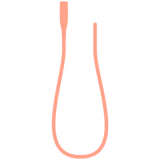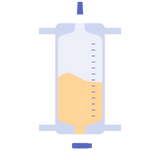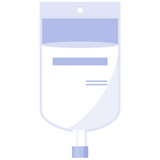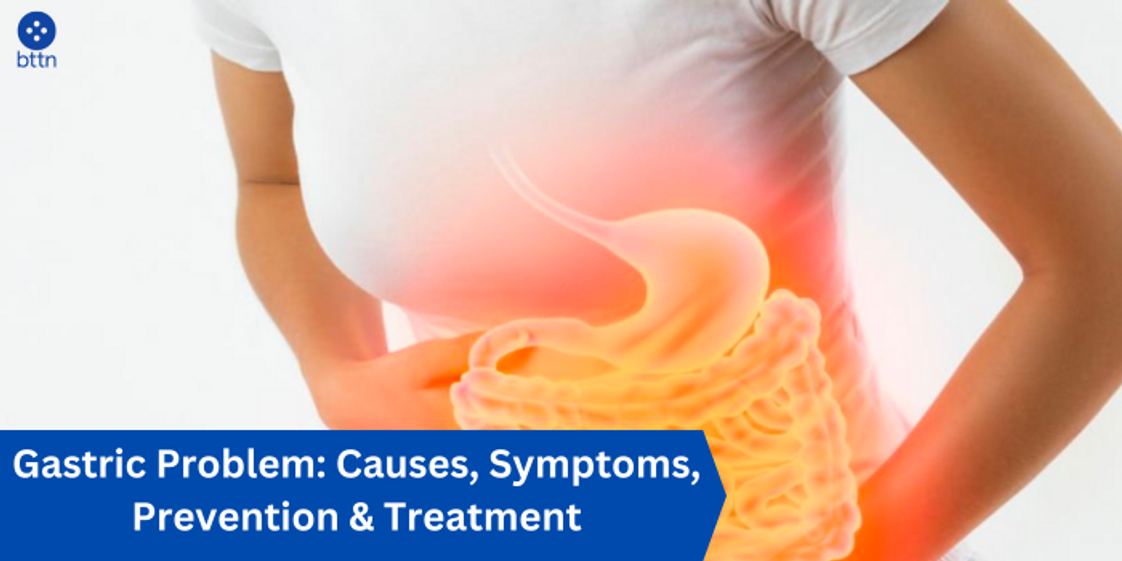
Gastric Problem: Causes, Symptoms, Prevention & Treatment
Posted by Pankaj Dhiman on Sep 14th 2023
Everything You Need to Know About Gastric Problem
If you've ever experienced that uncomfortable, sometimes painful sensation in your stomach after a meal or felt the burning sensation creeping up your chest, you may be familiar with gastric problems. These issues can disrupt your daily life and lead to significant discomfort. In this blog, we'll delve into the causes, symptoms, prevention, and treatment of gastric problems as of 2023.
Understanding Gastric Problems
Gastric problems, often referred to as digestive disorders or gastrointestinal issues, encompass a range of conditions affecting the stomach and digestive tract. These issues can vary from mild inconveniences to severe conditions that require medical attention.
Must Read - Sweet Syndrome: Symptoms, Causes, Diagnosis, Treatment, and Prevention
Common Causes of Gastric Problems
- Dietary Choices: What you eat plays a significant role in your digestive health. Consuming excessive amounts of fatty, spicy, or greasy foods can trigger gastric problems. High fiber diets can also lead to bloating and gas.
- Stress: Chronic stress can affect the functioning of your digestive system, leading to issues like irritable bowel syndrome (IBS) and indigestion.
- Infections: Bacterial and viral infections can cause gastritis, which is inflammation of the stomach lining. This can result in discomfort and pain.
- Gastroesophageal Reflux Disease (GERD): GERD occurs when the contents of the stomach flow back into the esophagus, causing heartburn and irritation.
- Food Allergies and Sensitivities: Certain individuals may be sensitive or allergic to specific foods, leading to digestive problems.
Common Symptoms of Gastric Problems
Recognizing the signs of gastric problems is essential for early intervention. Some common symptoms include:
- Heartburn: A burning sensation in the chest, often after eating or lying down.
- Indigestion: Feeling full, bloated, or experiencing discomfort after meals.
- Abdominal Pain: Sharp or cramp-like pain in the stomach region.
- Nausea and Vomiting: Feeling nauseous or vomiting can be indicative of various gastric issues.
- Changes in Bowel Habits: Diarrhea, constipation, or irregular bowel movements may be symptoms of gastrointestinal problems.
- Weight Loss: Unexplained weight loss can sometimes be linked to digestive disorders.
Must Read - Anxiety Disorders: Types, Causes, Symptoms & Treatments
Preventing Gastric Problems
While not all gastric problems can be prevented, you can take steps to reduce your risk:
- Dietary Modifications: Maintain a balanced diet rich in fruits, vegetables, and whole grains. Limit the consumption of spicy, fatty, and fried foods.
- Portion Control: Avoid overeating and consume smaller, more frequent meals.
- Stay Hydrated: Drinking enough water helps with digestion and prevents constipation.
- Manage Stress: Practice stress-reduction techniques such as yoga, meditation, or deep breathing exercises.
- Avoid Trigger Foods: If you know certain foods trigger your symptoms, avoid or limit their consumption.
- Regular Exercise: Physical activity promotes healthy digestion and helps maintain a healthy weight.
- Limit Alcohol and Caffeine: These substances can irritate the stomach lining, so consume them in moderation.
- Quit Smoking: Smoking can worsen symptoms of GERD and increase the risk of developing gastric problems.
Treatment Options
The treatment for gastric problems depends on the specific condition and its severity. Here are some common treatment approaches:
- Over-the-Counter (OTC) Medications: Antacids, H2 blockers, and proton pump inhibitors (PPIs) can provide relief from heartburn and indigestion.
- Prescription Medications: In cases of more severe conditions like GERD or ulcers, your healthcare provider may prescribe stronger medications.
- Dietary Changes: Adjusting your diet to avoid trigger foods can significantly alleviate symptoms.
- Lifestyle Modifications: Implementing lifestyle changes like stress reduction and weight management can improve your overall digestive health.
- Antibiotics: If a bacterial infection is the cause of your gastric problems, your doctor may prescribe antibiotics to clear the infection.
- Surgery: In rare cases where medications and lifestyle changes are ineffective, surgery may be necessary to correct structural issues in the digestive tract.
When to Seek Medical Attention
It's essential to know when your gastric problems require medical attention. Consult a healthcare professional if you experience:
- Persistent or severe abdominal pain.
- Unexplained weight loss.
- Difficulty swallowing.
- Bloody stools or black, tarry stools.
- Frequent vomiting.
These symptoms could indicate a more serious underlying condition that requires prompt evaluation.
Conclusion
Gastric problems can be both uncomfortable and disruptive to your daily life. However, by understanding their causes, recognizing symptoms early, and taking preventive measures, you can manage and even prevent many digestive issues. Remember that if your symptoms persist or worsen, it's crucial to consult a healthcare professional for proper diagnosis and treatment. By staying informed and making proactive choices, you can maintain better digestive health in 2023 and beyond.
























